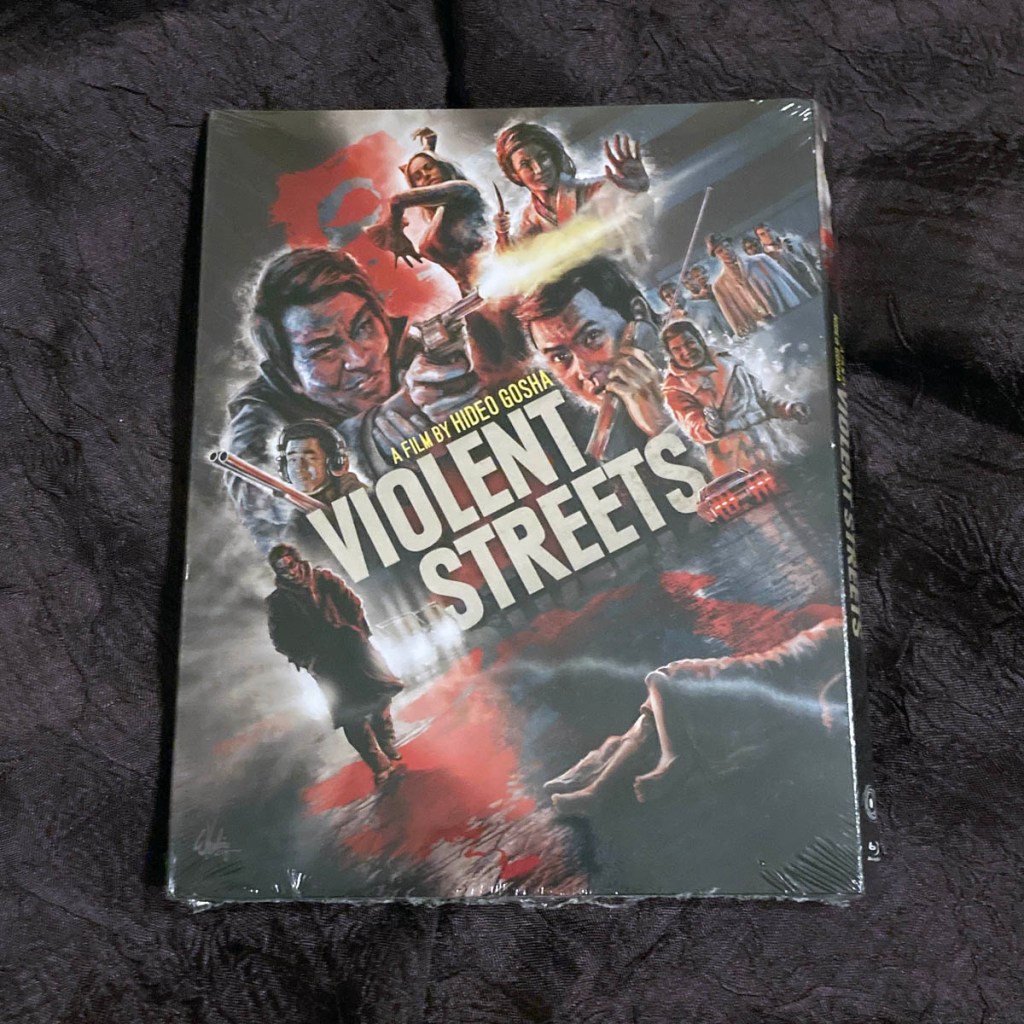The Cult favorite Toei crime saga is new on Blu from Film Movement Classics

Violent Streets chronicles a sprawling gang war of escalating violence, but centers on a retired Yakuza named Egawa, played by actual retired Yakuza, Noboru Andô. Egawa now spends his time running his nightclub, a retirement gift of sorts from his gang.
Despite having left the criminal life, it’s never very far away and things aren’t exactly easy. He’s still in the same neighborhood (possibly to make him easier to subjugate), and maintains contact with a couple of criminal associates (Akira Kobayashi, Bunta Sugawara). In his club, upstart thugs seem to be pointedly trying to test his nerve, goading him into violence. Most of all, he misses his old ex, who left him for a more successful gangster rival.


Meanwhile, things are heating up in the criminal underworld. One gang kidnaps a famous singer/actress from a television studio owned by another. Their simple ransom plot goes awry when they accidentally kill her, causing a much deeper rift than intended and fueling the flames of conflict into a straight-up war that even Egawa can’t avoid.


While Egawa is the film’s primary character, the cast is a relatively large one with lots of gangsters in different factions, and once the war gets going, there’s plenty of fighting and killing. The action heats up and there’s a fair amount of this violence back and forth – perhaps most memorably, there’s a hitman who dresses in drag to get close to his targets.




Whereas earlier yakuza and samurai films (like Big Time Gambling Boss, or Gosha’s own Samurai Wolf duology) were often concerned with themes of honor or nobility, Violent Streets and similar films of its time has no such aspirations. As Mark Schilling points out in the Blu-ray booklet, this genre shift moved from the ninkyo (chivalrous) ideal to the unglamorized jitsuroku (true record). Virtually all the characters in the film, including Egawa and his allies, are vile scumbags, and there’s not much that’s noble or righteous about them. If we have any investment in Egawa as a “good guy”, it’s for three main reasons: he’s less despicable than his foes, his grievance is legitimate, and he has solid chemistry with his charismatic costars.


Personally I prefer the ninkyo ideal of Yakuza films (which later served as the basis of Hong Kong’s heroic bloodshed subgenre) which is more cinematic and engaging to me than than the unapologetically mean jitsuroku, but this is nonetheless a compelling Yakuza film with an all-star cast, and a must-watch for the genre.
The Package / Unboxing
Film Movement’s Blu-ray edition of Violent Streets is now available to purchase.




The Blu-ray disc is housed in a clear case and includes a slipcover. On my copy the slipcover was a bit wide for the case, causing it to sit very loosely. Also included is a 16-page booklet with notes by author and historian Mark Schilling.


Special Features and Extras
A Street that Can’t Be Beat (8:44)
Author Patrick Macias (“TokyoScope”) reviews the film, introduces its “big four” key players, and places it in historical context as the yakuza genre was beginning to wane.

Tattooed Director: Hideo Gosha (15:38)
Interview with the director’s daughter, Tomoe Gosha.

Audio Commentary with author Chris Poggiali
Hideo Gosha Trailers
HD Trailers for all three titles in Film Movement’s new Hideo Gosha release lineup. These appear to be newly cut trailers for these restorations, featuring Film Movement logos and updated titles.
Samurai Wolf (1:31)
Samurai Wolf 2: Hell Cut (1:24)
Violent Streets (1:31)
Film Movement Ad (1:26)
A/V Out.
Except where noted, all 16:9 screen images in this review are direct captures from the disc(s) in question with no editing applied, but may have compression or resizing inherent to file formats and Medium’s image system. All package photography was taken by the reviewer.
Further reading:



